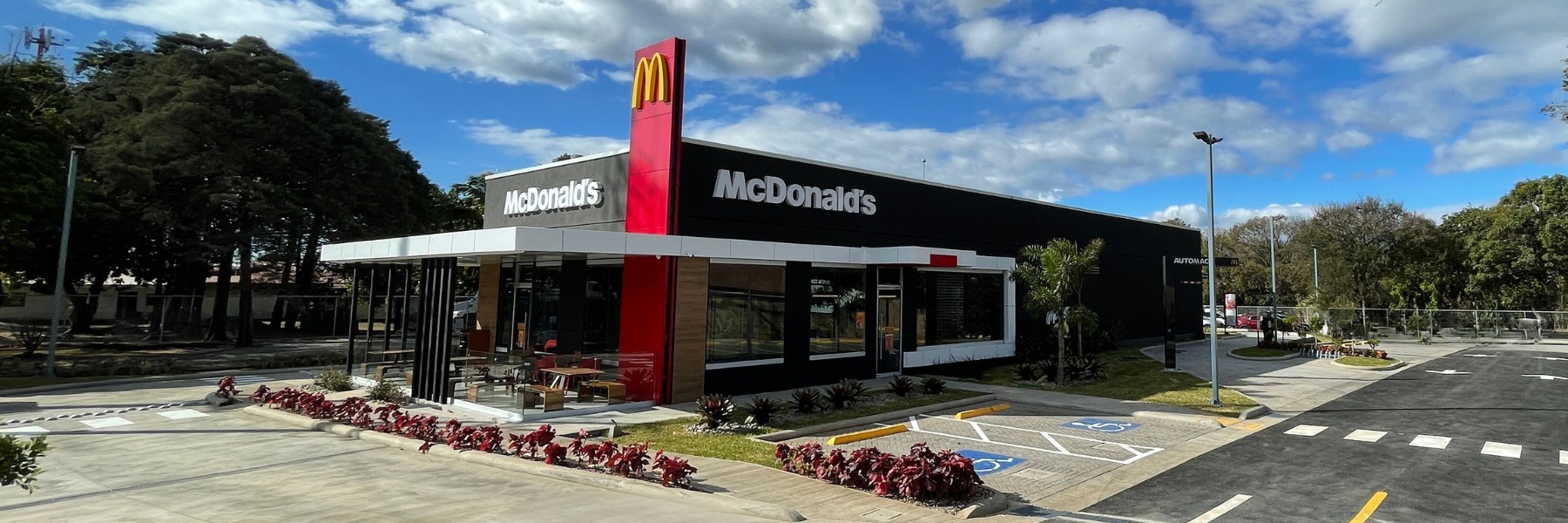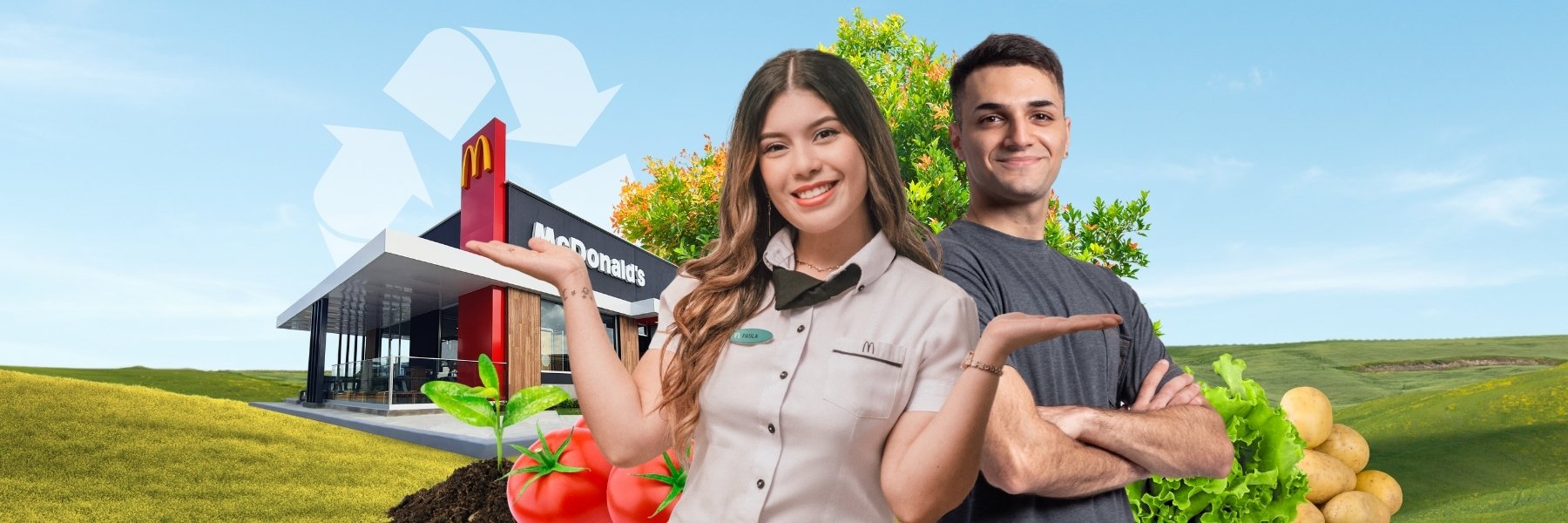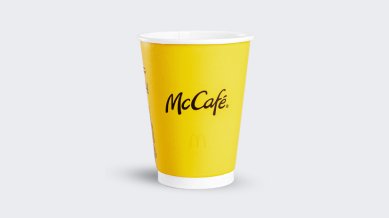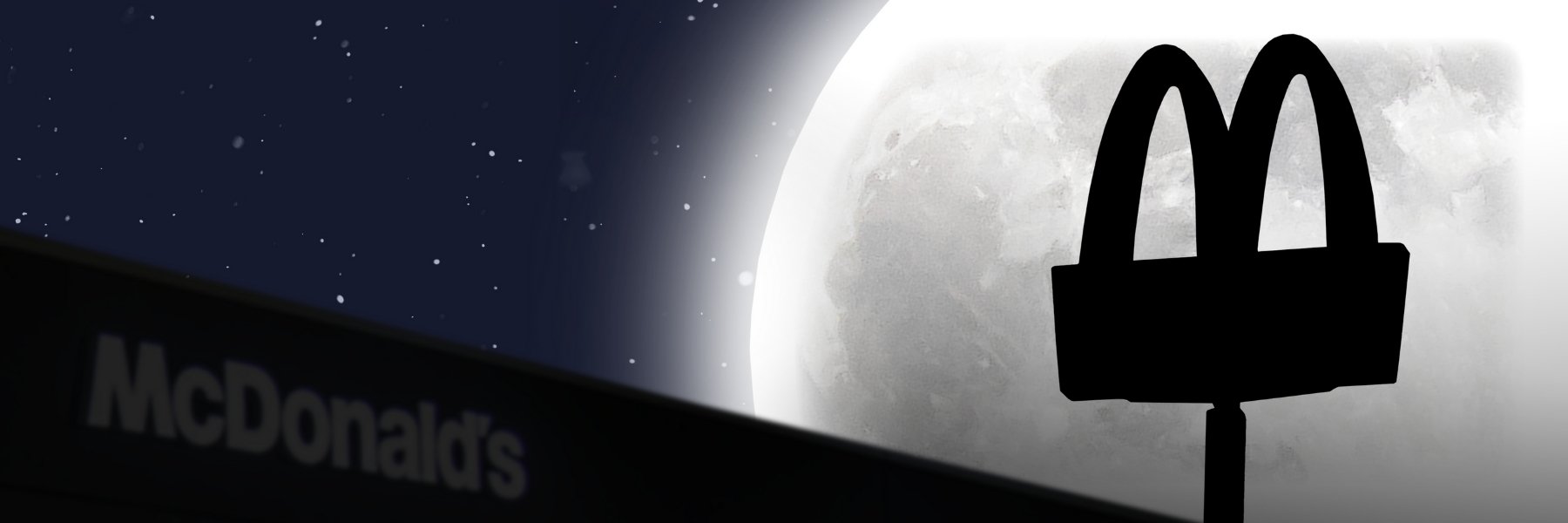Climate change
Climate Change
We strive to generate changes of habit in our restaurants, in the transition towards energy efficiency and in the use of renewable materials. Through the implementation of multiple initiatives that reduce our operation’s impact on the environment, we seek to motivate other industries to take care of the planet and create a better future for all.
Our Initiatives
Environmentally efficient restaurants
We design our restaurants to be as energy-efficient as possible and to use natural resources responsibly, promoting waste sorting and separation and the use of efficient air conditioning systems.

Our guidelines
- Installation of a high-efficiency air conditioning system and environmentally-friendly refrigerants.
- Use of programmable intelligent temperature control systems to operate when needed while ensuring guest comfort.
- Reduction of energy consumption by automatically switching exterior signage on and off, motion sensors to operate lights in low-traffic areas, and 100% LED lighting the restaurant.
- Use of an accessible electricity consumption meter to monitor usage and potentially implement additional savings initiatives.
- Installation of insulated ceilings to minimize the use of air conditioners.
- Reduction in the use of artificial lighting by allowing more natural light into the kitchens.
- Usage of insulated glass designed to reduce the impact of the sun’s heat.
- Use of energy-efficient kitchen equipment.
Our commitment over the years
- 2018: energy savings reached 15%.
- 2019: although we had 3% more restaurants, we only had a 2% increase in energy consumption.
- 2021: we increased the use of renewable energy in our restaurants from 4% to almost 12%.
- 2022: we nearly tripled the use of renewable energy in our operation, increasing it from 12% to 29%.
- Thanks to the Natal Program, deployed in more than 500 restaurants, we reuse water condensation from restaurant air conditioning units for cleaning and irrigation.
- Use of water flow reducers in taps in restrooms and kitchens.
- Reuse of rainwater for flushing urinals and toilets.
- Planting of native species that require limited irrigation.
Our commitment over the years
- More than 90 million liters of water reused thanks to the Natal Program.
- 20% of our restaurants have a water collection system for reuse.
- Installation of bins in the lobby with the ability to separate liquid, dry and organic waste.
- Installation of a garbage storage room including a cardboard separation section.
- In 2022, 88.5% of our packaging materials came from renewable sources.
- Use of eaves to generate shade and reduce the use of energy for cooling.
- Usage of mechanical ventilation to refresh and guarantee the air quality of the entire restaurant.
- Analysis of the restaurant building’s orientation to maximize natural light and reduce the use of air conditioners.
- Reuse of demolition materials for the construction of restaurants and other uses.
- Use of certified wood in the manufacture of restaurant furniture.
Sustainable Development Program
We seek to transform our restaurants into information, educational and training centers for the sustainable development of the communities in which we operate. To this end, we implemented a program that brings our employees and guests closer to concepts such as conscientiousness of water and energy conscientious as well as waste separation, among others.

Eliminating single-use plastic
At Arcos Dorados, we work to eliminate single-use plastics from our restaurants while still using the highest-quality packaging.


Our strategy focuses on some priority lines of work such as: decreasing the amount of materials used in packaging through design innovation, shifting inputs towards meeting targets and increasing circularity.
Thanks to this, since 2017 we have eliminated 1,700 tons of single-use plastics from our operation.
Our guidelines
- Elimination of plastic straws in all our restaurants.
- We no longer provide plastic lids for hot and cold beverages consumed inside restaurants.
- We replaced 100% of plastic salad bowls with FSC-certified fiber-based ones.
- We promoted the manufacture of more than 110,000 bio-based thermoplastic food trays from household waste in Brazil in collaboration with the Israeli Company UBQ, a global leader in recycling organic materials.
- We eliminated plastic-based breakfast containers.
- We redesigned our McFlurry cups and lids and they now contain 90% less plastic.
Our commitment over the years
2018
We reduced the use of 200 tons of plastic with the “Straw upon demand” program.
2019
- We reduced the use of 130 tons of plastic in Argentina and Colombia with the replacement of salad bowls.
- In Colombia, we replaced the plastic or “styrofoam” packaging of the entire breakfast menu with paper packaging.
- 69,000 fewer plastic bottles discarded with the “Better in a cup” campaign.
2020
We removed more than 1,400 tons of single-use plastic from our restaurants.
2021
We recovered 147 tons of cardboard, 2 million liters of oil and 90.6% of our packaging comes from certified and recycled sources.
2022
100% of our fiber suppliers met our certification goal.
Carbon Footprint
Committed to minimizing the impact of our operation, we monitor greenhouse gas emissions throughout our supply chain.
Our guidelines
In April 2022, we issued our first financial bond linked to sustainable development goals, representing a significant step in our environmental commitments with a positive impact on our entire value chain. With the issuance of the Sustainability-Linked Bond (SLB), we became the first company in our industry in the region to link its financing strategy to sustainable development goals related to reducing carbon emissions across our operations and supply chain.
Arcos Dorados is part of the Carbon Disclosure Project (CDP), the global disclosure system for self-reported environmental data in the categories of Forests, Water and Climate Change.
Through the CDP Supply Chain program, we ask our suppliers to report the greenhouse gas emissions generated in the production of raw materials and the initiatives developed to reduce them.
Our work throughout the years
2018
We were recognized for having the highest response rate achieved by a member of Latin American member of the CDP program in topics such as Climate, Water and Forest.
2019
- We achieved the participation of 245 suppliers, who reported a total emission reduction close to 3 million tons of CO2 equivalent.
- We were recognized once again for having the highest response rate achieved by a member of Latin American member of the CDP program in topics such as Climate, Water and Forest.
2020
We achieved for the first time a 100% response rate to the questionnaire.
2021
We measured the carbon footprint of all our regional operations for the first time, reaching the 20 countries that make up Arcos Dorados.
2022
We issue our first financial bond linked to sustainable development goals.
Earth Hour
We have been supporting the World Wildlife Fund (WWF) campaign for more than 10 years. Once a year, we turn off all external lights in our restaurants and offices for 60 minutes as part of our participation in this global initiative.

Our vision for the future
Implement the Sustainable Development Program in 100% of our restaurants.
- Reduce greenhouse gas emissions by 36%* in all restaurants and offices.
- Reduce supply chain emissions by 31%* in collaboration and partnership with our suppliers.
*based on 2015 levels





















